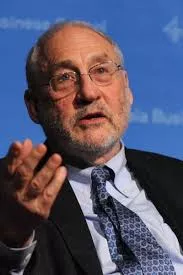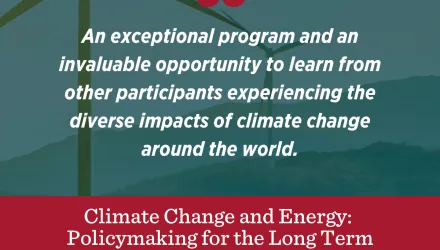Why We Need More Than a Carbon Price
Speaker: Joseph E. Stiglitz, University Professor, Columbia University
Although nearly all economists consider a carbon-pricing policy — either in the form of a carbon tax or a carbon emissions trading system — to be necessary to accomplish ambitious CO2 emissions reductions in large, complex economies, most such economists would also recognize such a carbon-pricing policy will not be sufficient. This is partly because of other market failures that get in the way of price signals, such as principal-agent problems and information spillovers of the results of research and development activities. Beyond this, there are significant political impediments to implementing carbon pricing in many jurisdictions. Professor Stiglitz will talk about this and much more in a conversation with Harvard Professor Robert Stavins.
Registration is required. Please click here to register in advance for this webinar.





